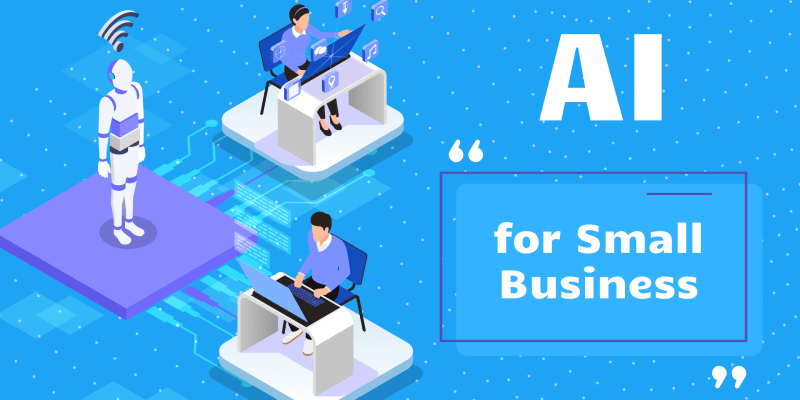
AI-Powered Chatbots for Customer Support
AI chatbots are revolutionizing customer service by providing instant, round-the-clock support. These tools can handle common inquiries, such as product questions, order status, or troubleshooting, freeing up human agents to focus on complex issues.
For instance, chatbots like ChatGPT or Tidio can engage with customers in real-time on your website or social media platforms, offering a seamless experience. Advanced bots powered by natural language processing (NLP) can deliver personalized, conversational responses, enhancing customer satisfaction and loyalty.
Automated Email Marketing Platforms
Email marketing remains one of the most effective ways to nurture leads and retain customers. AI-powered platforms like Mailchimp or Constant Contact use machine learning to optimize email campaigns by analyzing customer behavior and preferences.
These tools can automate email sequences, such as welcome messages, abandoned cart reminders, or personalized product recommendations. They also provide insights on open rates, click-through rates, and conversion metrics, allowing small businesses to refine their strategies and maximize ROI.
Predictive Analytics for Business Insights
Predictive analytics tools use AI to analyze historical data and forecast future trends, enabling small businesses to make informed decisions. Tools like Tableau or Google Analytics 4 help identify customer behaviors, market trends, and sales patterns.
For example, predictive analytics can determine which products are likely to sell during specific seasons or identify at-risk customers who may need re-engagement strategies. These insights help businesses allocate resources effectively and stay ahead of market demands.
AI-Powered Content Creation Tools
Creating high-quality content is crucial for engaging customers, but it can be time-consuming. AI-powered content tools like Jasper or Grammarly assist with generating blog posts, social media captions, and marketing copy tailored to your audience.
For instance, AI can suggest headlines, write product descriptions, or improve grammar and tone, ensuring your content aligns with your brand voice. These tools save time and ensure consistency across all communication channels.
Inventory Management Software
Efficient inventory management is critical for small businesses to reduce waste and meet customer demand. AI tools like TradeGecko or Zoho Inventory optimize inventory levels by predicting demand based on historical sales and market trends.
These platforms can automate reordering processes, track stock levels in real-time, and prevent stockouts or overstocking. For businesses with seasonal fluctuations, AI-driven insights ensure you’re prepared for peak periods without unnecessary excess inventory.
Social Media Management Tools
Managing social media accounts can be overwhelming for small businesses. AI-powered tools like Hootsuite or Sprout Social simplify the process by automating scheduling, analyzing engagement metrics, and providing content recommendations.
For instance, these tools can determine the best times to post, suggest trending topics, and even respond to comments using AI. By streamlining social media management, small businesses can maintain a consistent online presence while focusing on other priorities.
AI-Driven CRM Systems
Customer relationship management (CRM) systems powered by AI, such as Salesforce or HubSpot, help small businesses manage leads, track customer interactions, and improve sales processes.
AI features within these platforms can prioritize leads based on likelihood to convert, recommend personalized outreach strategies, and automate follow-up tasks. This ensures no opportunities are missed and strengthens customer relationships.
Dynamic Pricing Tools
For businesses in competitive industries, dynamic pricing tools like Prisync or Omnia Retail use AI to analyze market trends, competitor pricing, and customer demand. These tools adjust prices in real-time to maximize profitability while remaining competitive.
For example, a small online retailer can use dynamic pricing to offer discounts on slow-moving products or capitalize on high demand during peak seasons. This flexibility ensures your pricing strategy adapts to changing market conditions.
Voice and Visual Search Optimization
With the rise of voice assistants and visual search, optimizing for these technologies is essential. AI tools like Yoast SEO or SEMrush help small businesses optimize content for natural language queries and provide structured data for visual search compatibility.
For example, integrating voice search optimization ensures your business appears in results when users ask devices like Alexa or Google Assistant for recommendations. Visual search tools help customers find products using images, creating a seamless shopping experience.
Fraud Detection and Security Tools
Cybersecurity is a growing concern for small businesses. AI-powered tools like Darktrace or Norton Security use machine learning to detect and prevent fraudulent activities or data breaches.
These systems monitor your network for unusual behavior, flagging potential threats in real-time. By proactively addressing security risks, small businesses can protect sensitive customer information and maintain trust.
AI-Enhanced Hiring Platforms
Hiring the right talent is critical for small business success. AI-driven recruitment tools like LinkedIn Recruiter or Workable streamline the hiring process by analyzing candidate profiles and matching them with job requirements.
These platforms can screen resumes, identify top candidates, and even predict cultural fit based on historical hiring data. By reducing time spent on manual screening, small businesses can focus on finding the best talent.
Sales Forecasting Tools
AI tools like Pipedrive or Freshsales provide accurate sales forecasting by analyzing historical data, customer interactions, and market conditions. These tools help small businesses predict revenue, identify potential bottlenecks, and plan for growth.
For instance, a sales forecasting tool can highlight which products or services are performing well, enabling businesses to focus their marketing and sales efforts effectively.
Customer Feedback Analysis Tools
Understanding customer sentiment is vital for improving products and services. AI tools like Qualtrics or Medallia analyze feedback from reviews, surveys, and social media to identify trends and areas for improvement.
For example, a tool might highlight recurring complaints about a product feature, prompting necessary changes. Proactively addressing customer concerns enhances satisfaction and builds loyalty.
Conclusion
AI-powered tools are no longer just for large corporations—small businesses can now leverage these solutions to drive efficiency, improve customer experiences, and achieve sustainable growth. From automating customer support and optimizing marketing efforts to enhancing security and inventory management, the right AI tools empower small businesses to thrive in a competitive landscape. By adopting these technologies, you can focus on strategic growth while leaving routine tasks to intelligent systems, ensuring your business stays ahead of the curve. Get the facts here on small business AI tools not to ignore. Speak to a consultant for more information and options. These tools are a great way for small businesses to improve results and efforts.








